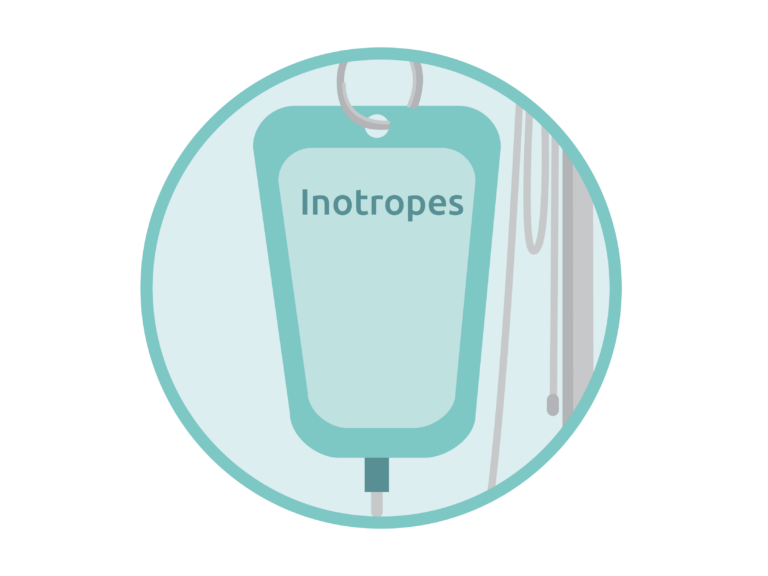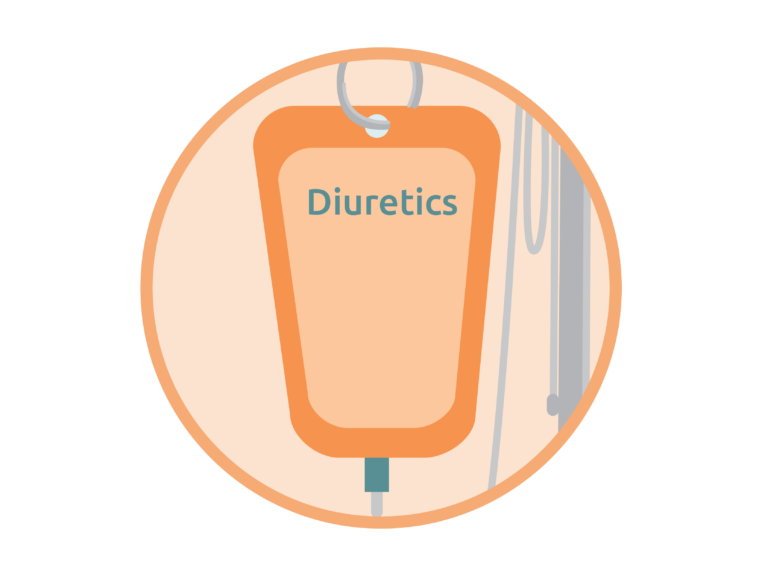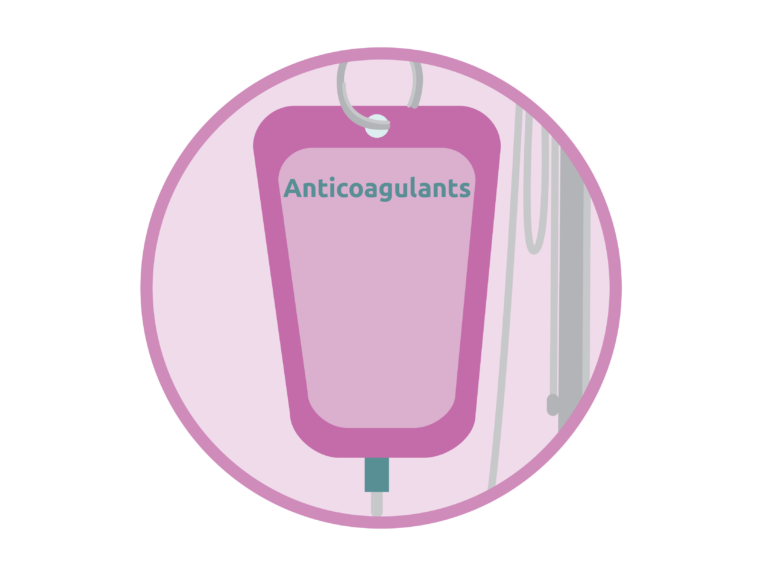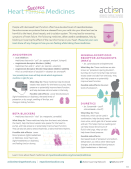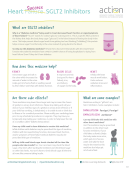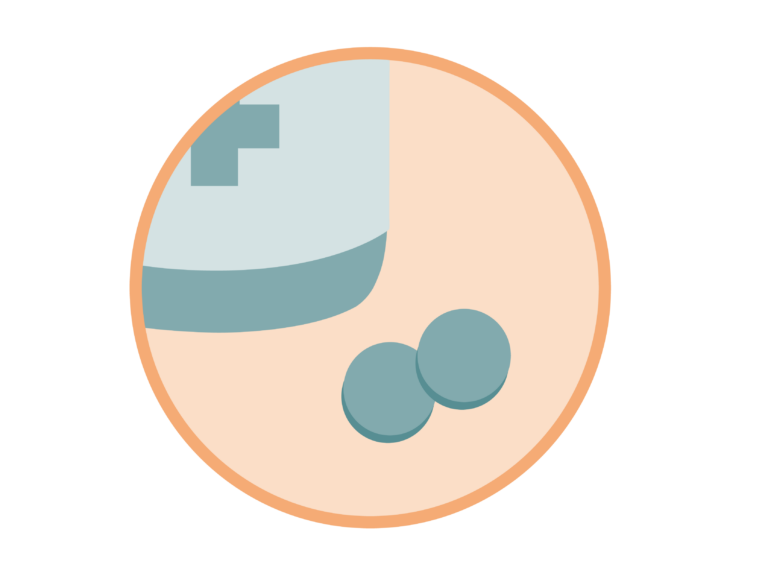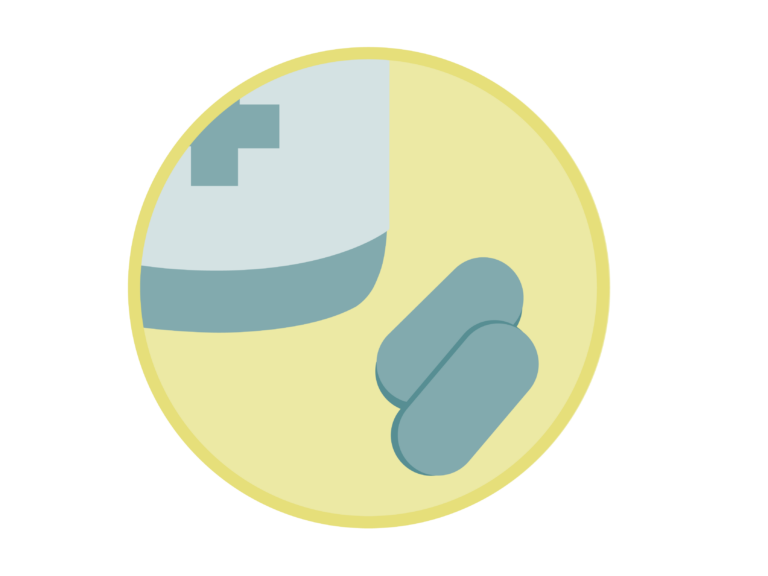Exploring Medicine
Treatment Options
If you’re living with heart failure, you may need medicines to help keep your heart and body healthy.
If you’re in the hospital, medicine is often given through an IV (intravenous therapy).
If you are at home, or ready to leave the hospital, your medicines will be taken by mouth.
If you’re living with heart failure, you may need medicines to help keep your heart and body healthy. If you’re in the hospital, medicine is often given through an IV (intravenous therapy). If you are at home, or ready to leave the hospital, your medicines will be taken by mouth.
1
Types
In order to keep you healthy, your doctor may prescribe different medicines. There are two main goals with heart failure medicines. The first goal is to improve your heart’s function by helping the ventricles squeeze better, which provides more blood flow to your body. The second goal is to decrease how hard your heart has to work by relaxing the blood vessels and/or removing extra water. Sometimes, these medicines may help stabilize, improve, or even recover your heart. In some cases the heart is too sick for medicines alone and other advanced treatment options like a ventricular assist device (VAD) or heart transplant may be needed. Watch the video below to learn more about treatment options.Overview
While you’re in the hospital, it’s likely that you’ll have IV (intravenous therapy) medicines. This means the medicine will be given to you by your care team and will go directly into your vein through the IV. There are three main kinds of medications you will get through IV: Your care team will monitor you closely while you’re on these medicines. If IV therapy is unsuccessful, your doctor may discuss more advanced therapy options.IV Therapy
Click the images below to learn more about each medicine.
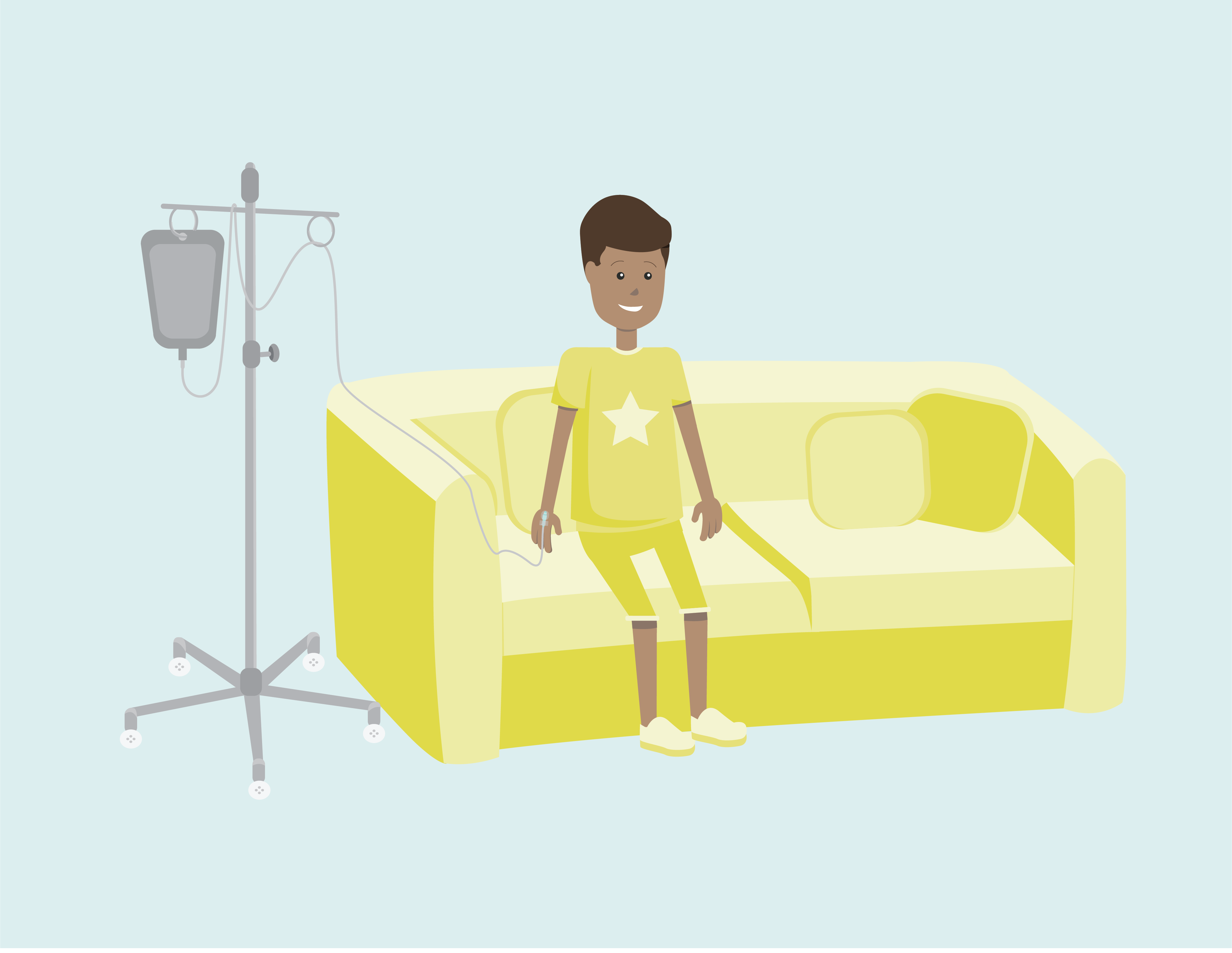
Inotropes
Learn about the medicines given through an IV that help your heart contract more easily.
Diuretics
Learn about the medicines given through an IV that help your body remove extra water.
Anticoagulants
Learn about the medicines given through an IV that thin your blood.
While you’re in the hospital, medicine is often given through an IV. As your doctors prepare you to go home, they will change those medicines to be given by mouth. It is important that you take your medicines exactly as your doctor tells you to. Oral medicines should be given at the same time every day. You can use a pill box to keep your medicines organized.By Mouth Therapy
Download and review our heart success informational handouts, and click on the images below to learn more about each type of medicine.
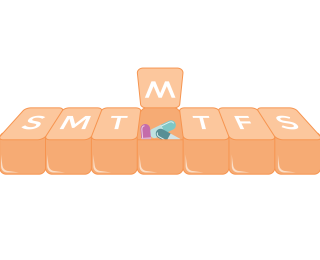
Anticoagulants & Antiplatelets
Learn about the medicines taken by mouth that thin your blood.
Diuretics
Learn about the medicines taken by mouth that help your body remove extra water
Antihypertensive
Learn about the medicines taken by mouth that help decrease your blood pressure.

